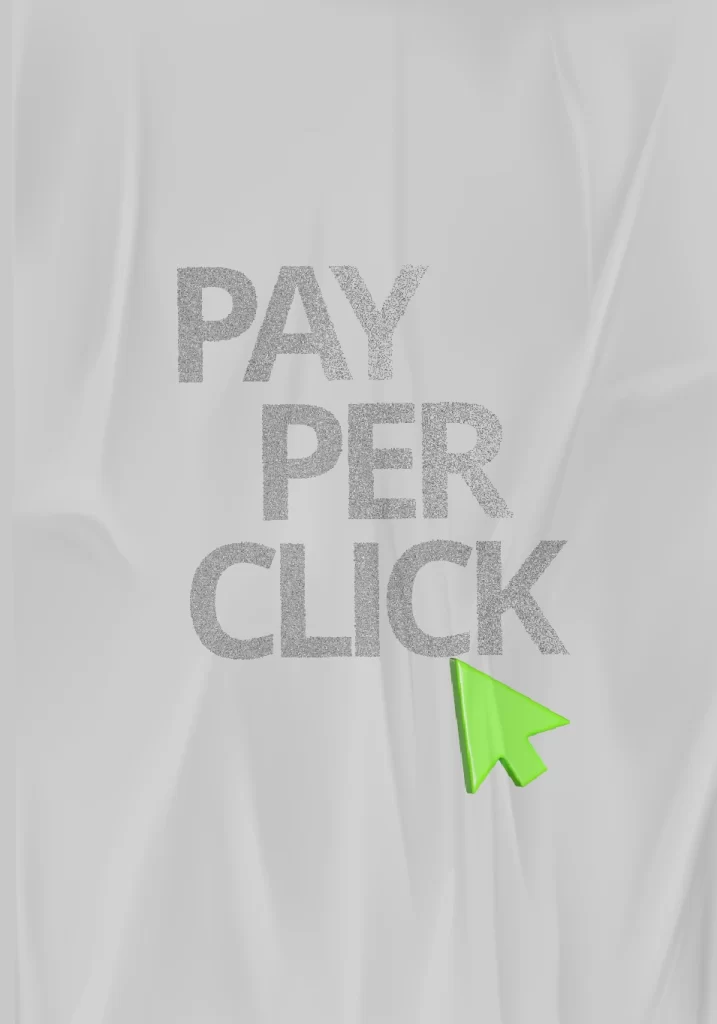Every household item you use including food, beverages, packaged foods, soap, and shampoos are part of the Fast Moving Consumer Goods or FMCGs. The industry that deals with them is called the FMCG industry. FMCG is the fourth-largest sector in the Indian economy. As the industry grows and becomes more competitive, brands must adapt strategies to capture user attention. One of the fastest ways to reach your target audience and attract visitors to your website is through PPC or pay-per-click marketing.
What is PPC Advertising?
PPC is a type of online advertising model in which advertisers pay for each click an ad receives. These ads are often displayed on search engine results pages (SERPs) or social media platforms. PPC advertising can be used to drive traffic to landing pages or websites and increase business leads. Typically, PPC ads are displayed to users based on their specific search queries. For example, if someone searches for “best cake shop near me,” PPC ads for cake shops appear. Businesses will need to bid on particular keywords in an ad auction to have their ad appear, which will ultimately determine the cost they pay for each click. PPC advertising includes various ad formats like search ads, display ads, social media ads, and banner ads.
Why is PPC essential for the FMCG Industry?
1. Immediate Visibility
FMCG is a highly competitive industry with new businesses coming up frequently. Consumer behaviour keeps shifting and options are available readily, so being at the top of the search results page is extremely crucial. Paid media marketing helps with this by offering immediate visibility.
2. Targeting Capabilities
PPC allows FMCG brands to target specific demographics, interests, and behaviours. This precision is particularly important for FMCG products, which often cater to distinct customer segments. For example, a brand selling organic snacks can target health-conscious consumers, ensuring that its ads reach the right audience at the right time.
3. Budget Flexibility
PPC campaigns provide significant budget control, allowing FMCG brands of all sizes to participate in paid advertising. Whether you’re a small start-up or a large multinational, you can set daily or monthly budgets that align with your marketing goals. This flexibility makes PPC an attractive option for brands looking to optimise their advertising spend.
3 Effective Digital Marketing Strategies for the FMCG Industry
1. Use Ad Extensions
Price extensions are a must-use extension for FMCG business. If you want to provide your target audience with value and stand apart from your competitors, you need to use extensions. Include as many extensions as you can to make your ad informative and relevant to your target audience.
2. Choose your campaign type
You don’t only need to know where you’ll advertise but also how. There are many different types of paid advertising campaigns, and the one you choose depends on where you can reach your audience. Different types of campaigns include:
Search Ads are the most common type of PPC and refer to the text ads that show up on search engine results pages.
Display Ads allow you to place ads (usually image-based) on external websites, including social. There are several ways to buy display ads, including Google Display Network (GDN) and other ad networks. Social Ads refer to any ads that you see on social media , including Facebook, LinkedIn, Twitter, and Instagram. You can pay to show up in your target audience’s social feed or somewhere else within their profile, depending on the platform.
Remarketing Ads use cookies or a list of contacts you upload to target people who have previously engaged with your company through some action. That action could be filling out a form, reading a blog, or simply visiting a page on your website.
Google Shopping Ads are most effective for e-commerce sites. Your ad, including image, price, and a short product description, will appear on a carousel search page based on your target keywords.
3. Design Mobile-first Landing Pages & Websites
Once you have made a detailed ad, you need to take care of the next part which is converting the users into customers. A lot of businesses forget about mobile-friendliness when it comes to their PPC strategy. While your ads may display on smartphones and tablets with zero issues, your landing page or website may deliver a subpar experience forcing them to bounce. So, if you want to improve your conversion rate , design a mobile-friendly landing page.
Mastering paid media marketing requires a combination of careful planning, strategic execution, and continuous refinement.
Keyword research, ad copy, and landing page optimisation are some of the most essential strategies you can focus on to get a higher return on your investment.
If you’re looking to implement performance-driven search, display, and social ad campaigns, we can help. Send us an email and let’s connect.



